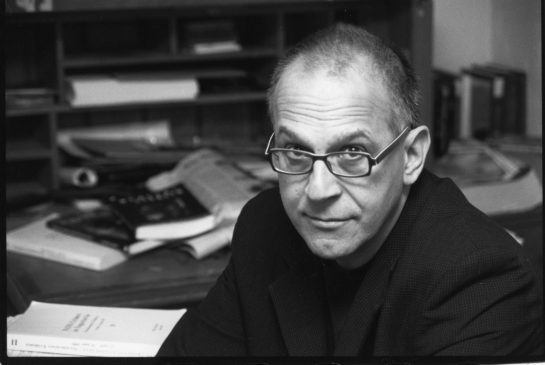
On October 27, 2013, the Osgoode community experienced the significant and tragic loss of an alum and cherished professor, Michael Mandel.
Many students received an email from the Dean, twitter and facebook headlines soon followed. Within hours, the Osgoode community reacted. Lawyers, academics, alumni and current students began to express their feelings of loss across various outlets.
An industry, not known for its ability to communicate genuine sentiment, was very honest in this moment. Professor Mandel inspired honesty, dare I say demanded it, by his own admissions. He never missed a moment to inject a critical perspective or critique. In a society that is so often self-censoring, fearful of being part of the unpopular opinion, afraid to step on someone’s proverbial toes, and apprehensive (or apathetic) to take a stance on anything; Professor Mandel broke the silence, on every issue
This type of vocalism, driven by what can only be explained as the product of intellect and passion, was not just a personal preference, and not just a lifestyle; but had become a unique Osgoode experience. It was an experience that connected 39 years worth of students through an unspoken understanding that their legal education was marked by something special, memorable, and distinct. For many, Professor Mandel introduced first year students to criminal law. But of course, he did much more than that. He presented an entire new paradigm to a room of neophytes. He challenged everything, including, and especially, the things that young law students were not prepared to challenge. It was through this vigourous and constant inquiry that the minds of many were shaped, influenced, encouraged and forever affected.
Whether or not you agreed or disagreed with Professor Mandel’s annunciated politics, whether or not you shared the same perspective about the Charter, War, or activism; we can all find common ground in his impartiality in light of his often-polarizing effect. Regardless of where you stood on an ideo-political quadrant, and regardless of how distant those coordinates were from his own ideo-political stance, you could always trust that Professor Mandel would read your paper, your exam, hear your comment, with the same respect and interest as any other individual in the class. He was dedicated to the craft of teaching, and more importantly, dedicated to his students; this is (one part of) his legacy.
Activist and academic accolades aside, albeit incredibly impressive and definitely noteworthy, Professor Mandel, in a way that only larger than life figures can, shaped what it means to be law professor. He was passionate, but impartial; fiery, but fair; and critical, but considerate. He often confused, outraged, antagonized, entertained, inspired, edified and educated his students in ways that spurred conversation outside the classroom, that promoted the pursuit of knowledge in a specific field, and that incited individuals to begin to ask the hard questions, not just of criminal law, but also of the “Law” and our space within that institution.
In his memory and to commemorate his very important legacy, we implore of you, Osgoode students, do not be complacent. Do not be apathetic. Do not settle. Do not accept anything as the status quo. Do not be downtrodden by the realities of law and its limitations, but rather push its boundaries. Use your education to share knowledge. Do not write people off on the basis of their position on the ideo-political quadrant. Engage in healthy debate with an open mind and reserve personal judgment for the sake of argument. Find common ground. Do not fall in line, fall in step, or fall in place; and if you fall, get back up with vigour and a sense of humour. Recognize and take ownership of your unique academic and financial privilege, and then do something meaningful because you are in the unique position to affect change.
There are few people who will come into your life and who will leave a long-lasting impression. Often these people are personal friends, family members, or significant others – their memories marred by strong affectionate or romantic emotions. There are even fewer people who will come to represent a time in your life and who will profoundly change your perspective on anything, much less your proposed career path. Lastly, there is only a small subset of people in the world who will do this on only the strength of their dialogue and conviction. Professor Mandel was such a person for this Editor-in-Chief, and on behalf of the Obiter Dicta, we would like to express our most sincere and deepest condolences to Professor Mandel’s family, and the entire Osgoode Community.
